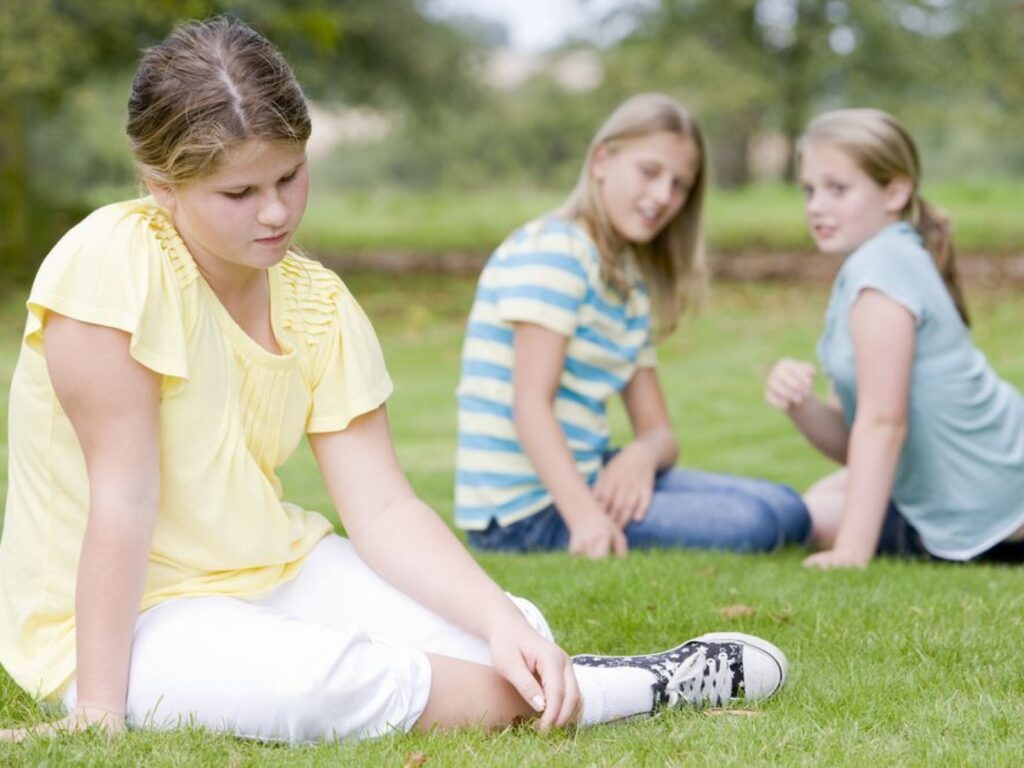Perhaps one of the most crucial and difficult times of a woman’s life is during the pre-teen and teenage years. The body is changing, the mind is becoming more self-aware, and peer pressure is at its highest level of intensity.
An overweight girl tends to be the brunt of jokes in school and is often ignored by the opposite sex, making this awkward time even more awkward. Young girls feel pressured to be super thin, even if they are of average weight and tend to pick up dangerous “dieting” habits from friends, such as binging and purging or using laxatives.
If you have a young girl at home who is struggling with her weight, or if you are a young teen looking for answers, we have some tips and solutions that can go a long way towards helping them reach their goals.
Weight Loss Solutions for Teenage Girls
Teenage girls face a multitude of challenges when it comes to weight loss. Here are a few ideas that specifically target teenage and pre-teen women.
- Don’t Skip Meals
While this sounds like the opposite of what you should do, the truth is that when you skip meals, you usually only succeed in making yourself more hungry and overeating later on. It’s best to eat 4 or even 6 tiny meals to keep your stomach fuller than to eat 2 huge meals. Numerous studies show that young women who eat breakfast have a lower BMI than girls who don’t.
- You Can Skip the Sodas, However
You need to drink plenty of water to keep your hormones working properly, as well as to help your body flush fat. Sugary sodas, energy drinks, sugar filled coffee drinks, and even fruit juice work against you, not for you. Ditch those drinks for water, green tea, flavored waters (without sugar), and enjoy an occasional diet soda if you wish.
- Walk Everywhere
Put in those earbuds and crank up some tunes! Walk or take the stairs everywhere! Ask your parents to drop you off a block or two from school and walk the rest of the way. Take the stairs at the mall, not the elevator. Walk from one friend’s house to another. Making walking your new best friend! These small steps will add up to some serious calorie burning.
- Think Low Carb
A true low-carb diet doesn’t cut out dairy products or fruit, so don’t get confused by diets that say otherwise. Aim to eat no more than 50 grams of carbs per day. You can find a print out of how many grams of carbs each food has so you can make smart choices. For most people, this means eating a lot more things like chicken and vegetables, one piece of fruit per day, and cheese, nuts, eggs, and even a glass of milk. Low-carb diets are a great way to lose weight quickly.
- Don’t Eat After 7 or 8 PM
Depending on your family’s meal schedule, try to avoid eating anything after 7 or 8 PM. Late night snacks are one of the main culprits of weight gain. Not only will your body not be burning those calories, but most people tend to eat unhealthy things in the evenings, such as ice cream, potato chips, or cookies. If your stomach is growling, have two cups of air popped popcorn (not the buttery kind) with garlic salt. This will fill you up, but won’t fill you out.
What are the Challenges of Losing Weight for Teenage Girls?
Losing weight can present unique challenges for teenage girls due to various physical, emotional, and social factors. Here are some of the challenges they may face:
- Body Image Pressures: Teenage girls often face significant societal pressure to conform to unrealistic beauty standards, which can contribute to negative body image and disordered eating behaviors. This pressure may lead to unhealthy weight loss practices or feelings of inadequacy.
- Peer Influence: Peer influence plays a significant role in teenagers’ behaviors, including eating habits and physical activity levels. Girls may feel pressure to fit in with their peers, which can influence their food choices, exercise habits, and attitudes toward weight loss.
- Hormonal Changes: Puberty brings significant hormonal changes that can affect metabolism, appetite, and body composition. Hormonal fluctuations may make it more challenging for teenage girls to lose weight or maintain a healthy weight, despite their efforts.
- Emotional Eating: Teenage girls may turn to food for comfort or stress relief, leading to emotional eating behaviors. Coping with academic pressures, social relationships, or family issues can trigger emotional eating episodes, making it difficult to adhere to a healthy eating plan.
- Limited Autonomy: Teenagers often have limited control over their food choices and may rely on parents or caregivers for meals and snacks. Lack of autonomy in food selection and preparation can make it challenging for girls to adhere to a weight loss plan or make healthier choices.
- Sedentary Lifestyles: With the rise of technology and screen time, many teenagers lead sedentary lifestyles, spending hours sitting and engaging in screen-based activities. Limited physical activity can contribute to weight gain and make it harder to lose weight.
- Nutritional Knowledge: Many teenagers lack basic nutritional knowledge and may not understand the importance of balanced eating or portion control. Without adequate education about nutrition, girls may struggle to make informed food choices that support weight loss and overall health.
- Parental Influence: Parental attitudes and behaviors regarding food, exercise, and body image can significantly impact teenage girls’ weight loss efforts. Positive parental support and role modeling can promote healthy habits, while negative attitudes or behaviors may hinder progress.
- Disordered Eating Patterns: Adolescence is a vulnerable period for the development of disordered eating patterns, such as binge eating, restrictive eating, or compulsive exercise. These behaviors can interfere with weight loss efforts and have serious physical and psychological consequences.
- Medical Conditions: Some teenage girls may have underlying medical conditions, such as polycystic ovary syndrome (PCOS), thyroid disorders, or hormonal imbalances, that affect metabolism and weight regulation. Addressing these medical conditions may be necessary for successful weight management.
Navigating these challenges requires a holistic approach that addresses physical, emotional, and social aspects of health. Encouraging positive body image, promoting healthy eating habits, fostering a supportive environment, and providing education about nutrition and exercise can help teenage girls overcome these challenges and achieve their weight loss goals in a safe and sustainable manner.
Is It Normal for a Teenage Girl to Have Belly Fat?
Yes, it is normal for teenage girls to have some amount of belly fat as part of their natural body composition. During adolescence, hormonal changes, genetic factors, and overall growth and development can contribute to changes in body fat distribution, including the accumulation of fat around the abdomen.
It’s essential to recognize that body fat distribution varies among individuals, and having some belly fat does not necessarily indicate poor health or a need for weight loss. However, excessive abdominal fat, particularly visceral fat (fat stored deep within the abdomen), can increase the risk of health issues such as type 2 diabetes, cardiovascular disease, and metabolic syndrome.
Factors that can contribute to the accumulation of belly fat in teenage girls include:
- Hormonal Changes: Fluctuations in hormones during puberty can affect fat distribution, particularly around the hips, thighs, and abdomen.
- Genetics: Genetic predisposition plays a significant role in determining body fat distribution and overall body shape.
- Diet and Lifestyle: Poor dietary habits, lack of physical activity, and sedentary behaviors can contribute to excess belly fat accumulation.
- Stress: Chronic stress can lead to the release of cortisol, a stress hormone associated with increased abdominal fat storage.
- Sleep: Inadequate sleep or poor sleep quality may disrupt hormonal balance and contribute to weight gain, including belly fat.
While some amount of belly fat is normal and healthy, it’s essential for teenage girls to maintain a balanced lifestyle that includes a nutritious diet, regular physical activity, adequate sleep, and stress management. Encouraging healthy habits rather than focusing solely on weight or body size is key to promoting overall well-being and positive body image.
If a teenage girl expresses concerns about her body or weight, it’s important to approach the conversation with sensitivity and empathy. Focus on promoting healthy behaviors rather than weight loss, and emphasize the importance of self-care, body positivity, and overall health and well-being. If needed, seek guidance from a healthcare professional or registered dietitian who can provide personalized advice and support.
Does Puberty Fat Go Away?
During puberty, both boys and girls experience changes in body composition due to hormonal fluctuations and growth spurts. It’s common for teenagers to gain weight and experience changes in fat distribution during this time. In girls, puberty typically brings about an increase in body fat, particularly in areas such as the hips, thighs, and breasts, as well as some accumulation of fat around the abdomen.
For many individuals, the fat gained during puberty tends to redistribute or decrease as they continue to grow and mature into adulthood. This redistribution is influenced by factors such as genetics, hormonal changes, diet, and physical activity levels. As teenagers continue to develop and their bodies settle into their adult form, they may naturally lose some of the excess fat gained during puberty.
However, it’s important to note that everyone’s body is unique, and the rate and extent of fat loss or redistribution can vary greatly among individuals. Some individuals may find that certain areas of fat persist into adulthood, while others may experience more significant changes in body composition.
Regardless of whether puberty fat “goes away” or not, it’s crucial for teenagers to focus on overall health and well-being rather than solely on weight or body size. Encouraging healthy habits such as regular physical activity, balanced nutrition, adequate sleep, and stress management can support positive body image and overall well-being throughout adolescence and beyond. If a teenage girl has concerns about their body composition or weight, it’s advisable to seek guidance from a healthcare professional or registered dietitian who can provide personalized advice and support.
How to Talk to a Child About Weight Management?
Talking to a child about weight management requires sensitivity, empathy, and a focus on promoting health and well-being rather than appearance or body image. Here are some tips for having a constructive conversation about weight management with a child:
- Choose the Right Time and Place: Find a quiet and private moment to have the conversation, free from distractions or interruptions. Ensure that both you and the child are in a calm and receptive state of mind.
- Use Positive Language: Frame the conversation in a positive and supportive manner, focusing on health, energy, and well-being rather than weight or appearance. Emphasize the importance of taking care of one’s body and feeling good from the inside out.
- Be Honest and Transparent: Be honest with the child about the importance of maintaining a healthy weight and lifestyle for overall health and well-being. Use age-appropriate language and concepts to explain the connection between nutrition, physical activity, and health.
- Encourage Open Communication: Create a safe and non-judgmental environment where the child feels comfortable expressing their thoughts, feelings, and concerns about weight management. Listen actively and validate their experiences without criticism or judgment.
- Focus on Health, Not Weight: Shift the focus away from weight as the primary indicator of health and instead emphasize healthy habits such as eating nutritious foods, staying active, getting enough sleep, and managing stress. Emphasize that everyone’s body is different, and the goal is to be healthy and strong, not to conform to unrealistic ideals or standards.
- Lead by Example: Be a positive role model for the child by practicing healthy habits yourself, such as eating balanced meals, being physically active, and prioritizing self-care. Children are more likely to adopt healthy behaviors when they see adults modeling them consistently.
- Involve the Child in Decision-Making: Empower the child to take an active role in their own health and well-being by involving them in decision-making processes such as meal planning, grocery shopping, and choosing physical activities they enjoy. Encourage them to set realistic goals and celebrate their achievements along the way.
- Offer Support and Encouragement: Offer ongoing support, encouragement, and praise as the child makes positive changes toward a healthier lifestyle. Focus on progress rather than perfection and provide gentle guidance and encouragement when setbacks occur.
- Address Emotional Eating and Body Image Concerns: Be mindful of any underlying emotional issues or body image concerns that may be contributing to unhealthy eating habits or weight-related stress. Offer support and guidance in developing healthy coping mechanisms and positive self-esteem.
- Seek Professional Help if Needed: If you have concerns about your child’s weight or eating habits, consider seeking guidance from a pediatrician, registered dietitian, or mental health professional who specializes in working with children and adolescents.
By approaching the topic of weight management with empathy, openness, and a focus on health and well-being, you can help empower the child to make positive choices and develop lifelong habits that support their overall health and happiness.



0 Comment